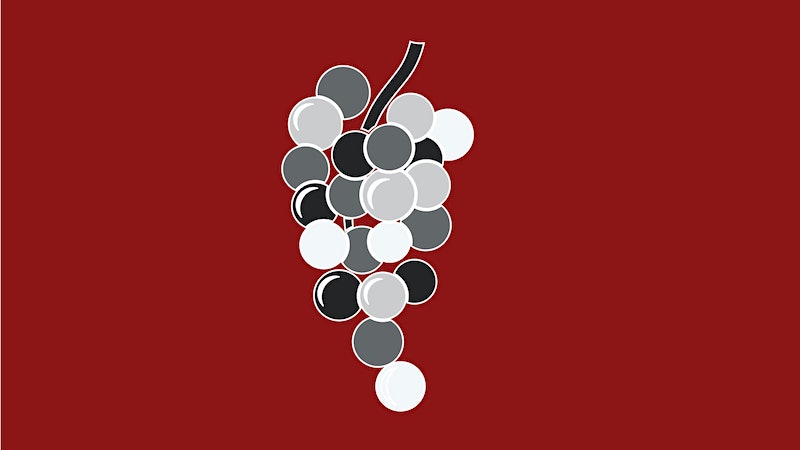Q: Can I drink retsina if I have a pine allergy?—Conor, Louisville, Ky.
A: Retsina is a Greek white wine infused with pine resin, which imparts a distinctive flavor and aroma. The story goes that retsina was developed in ancient times, when people would line and seal amphorae with pine sap to help preserve the wine inside. Some of the resin would get into the wine, and the style became so popular that Greeks began infusing wine with resin on purpose. Retsina isn’t to everyone’s taste and has suffered from a bad reputation, but several winemakers are producing high-quality versions and attempting to win new fans of the style.
But is it a good idea to drink retsina if you have a pine allergy? People can be allergic to pine nuts, pine pollen or pine resin (also called rosin or colophony). Pine nut allergy can cause severe symptoms, including anaphylaxis, while pine pollen allergy is usually similar to other pollen allergies. Both are caused by an IgE-mediated immune response, which is distinct from the cell-mediated immune reaction involved in pine resin allergies. Moreover, the molecules that cause pine resin allergy, various types of methyl esters, are different from those that cause pine nut and pollen allergies.
Dr. Michael Blaiss, a spokesperson for the American College of Allergy, Asthma and Immunology and clinical professor at the Medical College of Georgia at Augusta University, told Wine Spectator that “with contact to resin, people can develop an acute allergic contact dermatitis. This usually occurs one to three days after contact and [causes] an itchy rash.” Dr. Blaiss notes that this type of allergy appears to occur in less than 1 percent of the population. It seems unlikely that drinking retsina would trigger a reaction since there is “no long-term contact in the mouth or GI tract with the small amount of resin in the wine.”
Dr. Sayantani Sindher, an allergist and immunologist at Stanford University Medical Center, agrees that a reaction to retsina is unlikely, even for those with an established pine resin allergy: “I don’t think folks need to avoid things unnecessarily unless they are experiencing symptoms or if a trained provider has advised them [otherwise].”
Both doctors say there’s little reason for someone with pine nut or pollen allergy to avoid retsina either. Dr. Blaiss says there’s “no relationship, allergy wise, [between] people with pine resin allergy and people with pine nut and/or pine pollen allergy.” Dr. Sindher adds that “if a person is having reactions they [should] get a more thorough evaluation performed by their allergist.”
Yiannis Paraskevopoulos, winemaker at Gai’a, which makes a widely available retsina, told Wine Spectator he had never heard of anyone having an allergic reaction to retsina. “I don’t know why you Americans are so obsessed with allergies!” he exclaimed with a smile, before offering some tips for drinkers new to the wine. First, drink it young. “These are wines that need to be consumed quite rapidly, within the year of their production—otherwise they will acquire those [off-putting] flavors of paint remover and white spirits” that result from the oxidation of pine resin. He says retsina deserves a place in any wine lover’s pairing repertoire: “If it’s a very young retsina, it’s delightful … for cuisine [that] is very strong in aromatics, like Thai or Indian.”
Though most retsinas, by Greek law, can’t be vintage-dated, some producers print the bottling date on the label, which can tip you off to a bottle that’s been sitting on a shelf for too long. Paraskevopoulos also concedes that in the past, many retsinas were poorly made, with amounts of resin that seem excessive to most palates today. “If [wine drinkers] have a negative opinion [of retsina], it’s not them to blame; it’s the Greeks to blame.” Nonetheless, he encourages the retsina-curious to give the wine—which he says provides an “amazing herbal explosion” at its best—another shot.
As always, talk to your healthcare provider about incorporating retsina, or any wine, into a healthy lifestyle.—Kenny Martin












